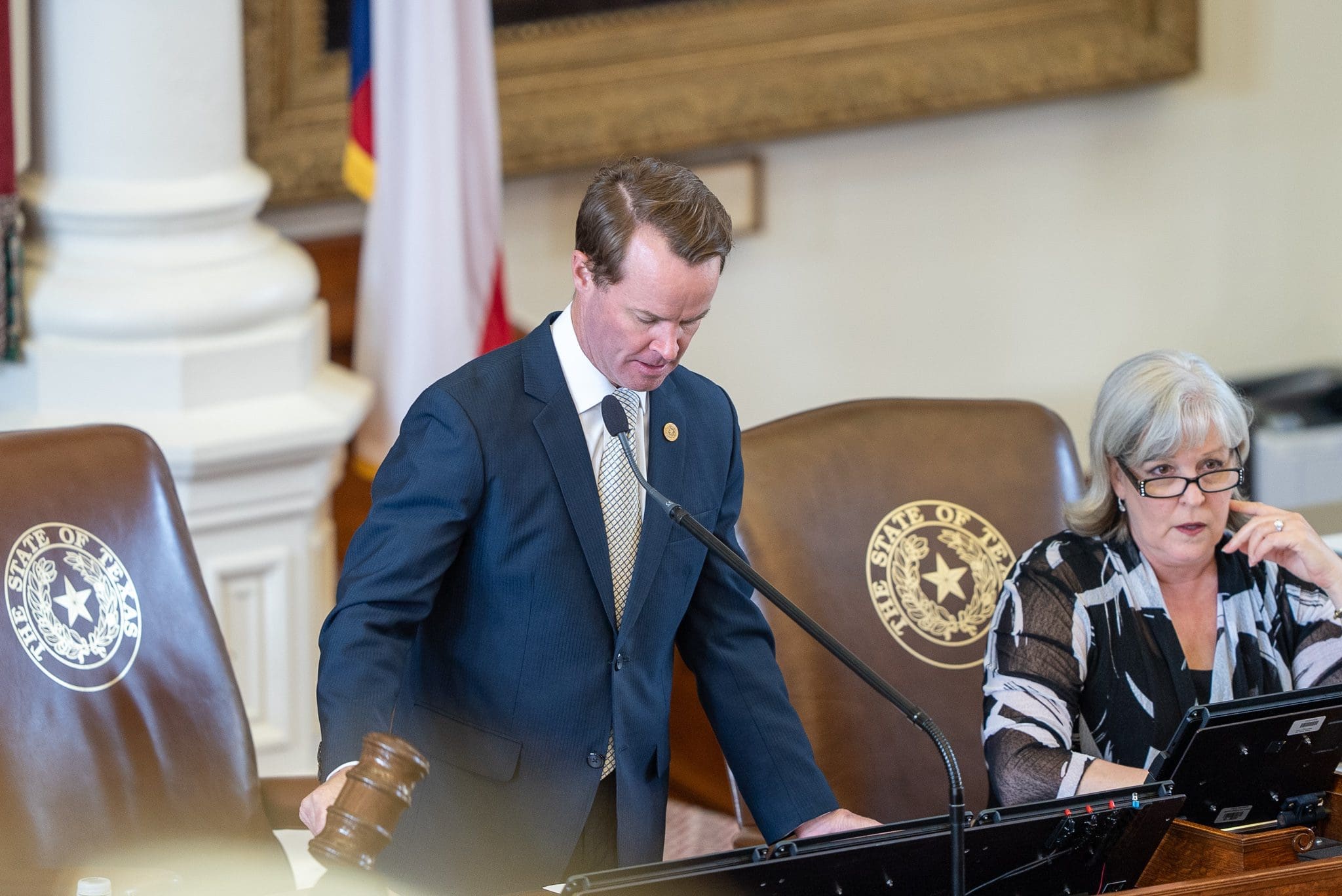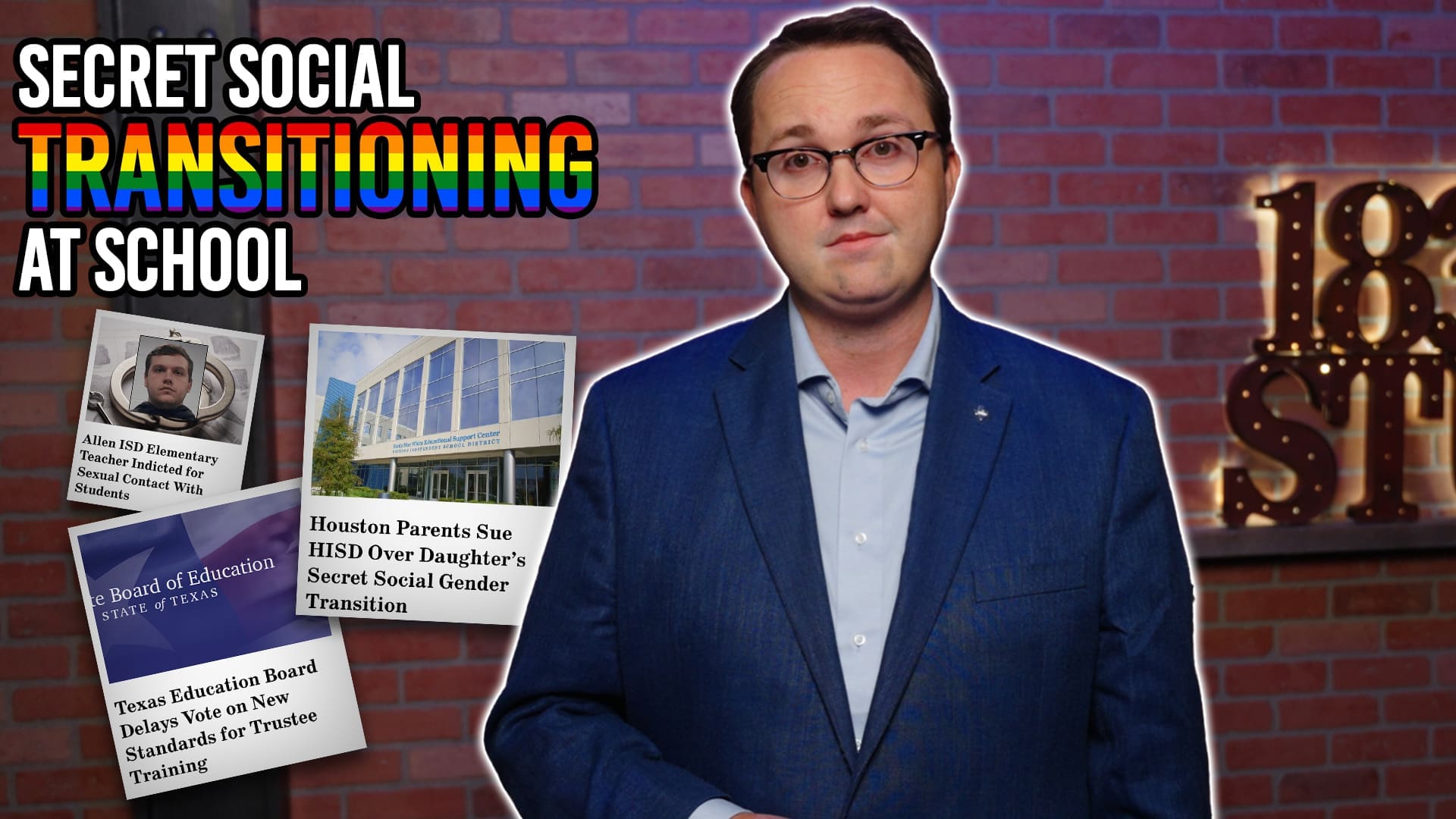Once again eschewing the priorities of Texas Republicans, House Speaker Dade Phelan announced three more of his own legislative priorities—including reviving a controversial corporate welfare program opposed by both parties.
Phelan says the package of priorities is aimed at “economic and workforce development.”
House Bill 8 by State Rep. Gary VanDeaver (R–New Boston) would establish a “new funding model” for community colleges and create a scholarship program for “economically disadvantaged high school students to enroll in dual credit courses.”
House Bill 19 by State Rep. Andrew Murr (R–Junction) would create a new specialized business court system in the state.
But it’s House Bill 5 by State Rep. Todd Hunter (R–Corpus Christi) that is raising the most eyebrows.
Deemed the “Texas Jobs and Security Act,” Phelan said the bill “would provide Texas with a critical economic development tool to create additional jobs, investments and tax revenue, keeping the state competitive in drawing businesses to relocate or expand here.”
The legislation comes on the heels of the expiration of the state’s controversial Chapter 313 program. That program allowed school districts to offer large tax breaks for 10 years to unreliable energy and other businesses—including the wind farms that famously failed Texans during the winter storm of 2021. The tax breaks come at no loss to the school districts. Instead, the state supplements the lost revenue to the districts from sales taxes and other state-collected taxes.
The program has drawn criticism from the right and left; both the Republican Party of Texas and the Democrat Party of Texas call for the abolition of Chapter 313 abatements in their party platforms.
Phelan, however, has been supportive of reviving the program, saying the new version would offer taxpayers “transparency into how those state incentive dollars are used, the number of jobs created and the full economic impact of such projects on communities.”
Many have voiced opposition to to any kind of state program that hands out tax abatements, regardless of rebranding efforts.
“Whether you call it a Chapter 313 or not, the government being in the business of picking winners and losers under the guise of economic incentives in a free enterprise system is corporate welfare,” said Jeramy Kitchen, the executive director of Texans for Fiscal Responsibility.
Gov. Greg Abbott has also recently announced his support for resurrecting the program.
Last week, Phelan announced his first set of legislative priorities, which includes legislation to help increase data protection, expanding Medicaid coverage for mothers, protecting minors from social media companies, and eliminating the state’s sales tax on tampons.
None of Phelan’s seven priorities so far are legislative priorities of the Republican Party of Texas, Gov. Greg Abbott, or Lt. Gov. Dan Patrick.
Texas GOP Chairman Matt Rinaldi, who had been critical of Phelan’s first set of priorities, expressed his continued disappointment.
“The business courts are a good idea. Corporate welfare is a bad idea. But overall, I think Gov. Abbott and Lt. Gov. Patrick ‘met the moment’ by setting out bold priorities at a time when our country is so seriously on the wrong track,” Rinaldi told Texas Scorecard. “The Speaker’s priorities announced so far have not been bold, but rather minor changes from the status quo at a time when most voters would like to see more.”
Texas Scorecard recently highlighted the Chapter 313 program in an investigative series, The Texas Mafia.





